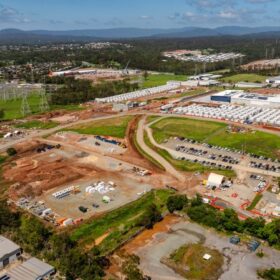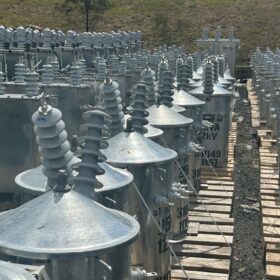In Australia, the introduction of the Australian Sustainability Reporting Standards (ASRS) represents the most significant changes to corporate reporting in decades, and the implications reach far beyond compliance.
The first batch of climate-related financial disclosures will be released in the first quarter of 2026, bringing a new era of corporate transparency. For many companies, the phasing of disclosure requirements and timelines means preparation must already be well underway, from establishing data systems and governance frameworks to understanding how climate risks and opportunities affect financial performance.
For the first time, Australian companies will be required to disclose material climate risks and opportunities, as well as how they will be managed. This is not a superficial shift. Climate-related data and disclosures will now sit on the same level as financial statements: they’ll be audited, signed off by company directors, and scrutinised by regulators. Directors face new liabilities for non-compliance. Organisations that move the conversation internally from compliance to credibility and action will benefit the most.
Why credibility matters more than compliance
Credibility, at its core, is about trust. To achieve this, companies need clear governance and accountability, accurate and auditable data, targets based on science if they exist, and transparent methods for tracking progress. The organisations that succeed under ASRS will be those that treat sustainability as a strategic pillar, not a compliance exercise.
Data integrity remains a critical barrier. Too many still rely on spreadsheets to manage energy and climate-related data, a method that can introduce unnecessary risk. The reporting standards will introduce a ratcheting system of assurance levels, moving from no assurance, to limited, and – eventually – to reasonable assurance. That means companies must invest in digital platforms and processes that can withstand audit scrutiny and support consistent reporting year after year.
Embedding climate risk into business strategy also takes time and cross-functional engagement. The most complex area, Scope 3 emissions, includes emissions throughout a company’s value chain, and will soon demand attention from everyone. While not required in year one, all fifteen Scope 3 categories must be disclosed from year two onwards. For many, Scope 3 emissions are where the majority of their emissions are generated. Addressing Scope 3 requires meaningful engagement with suppliers and partners, and a willingness to take responsibility for emissions beyond direct control.
Mandatory reporting is ultimately a driver for market change because it creates understanding of the explicit link between climate and financial outcomes. That connection, between sustainability and shareholder value, is what will transform corporate decision-making in the years ahead.
Turning transition plans into action
Transition plans are now a focal point of credibility. While not technically mandatory, any company setting climate targets must disclose how it will achieve them, the actions, resources, and timelines involved. Without that level of detail, targets risk being dismissed as unsubstantiated or even greenwashing. Legal advice is a must.
Credible transition plans share three traits: they are ambitious yet feasible, integrated into the organisation’s strategy, comprehensive, maintained and verifiable. They clearly describe how actions will be executed and how progress will be measured. Building this credibility requires both strong governance and the right data systems, you can’t report on sustainability without good data, just as you can’t report financials without it.
For those who still haven’t prepared for ASRS, my advice is to start now. The phased rollout means that smaller organisations will soon fall within the reporting net, and establishing reliable data systems, internal expertise, and governance processes takes time. Engaging early with technical experts like those in SE Advisory Services can help organisations avoid costly mistakes later.
Mandatory reporting shouldn’t be considered an administrative burden; it’s a catalyst for better business. When companies truly understand how climate change affects their operations, they uncover opportunities for efficiency, innovation, risk reduction, and growth. From energy & resource efficiency and electrifying fleets to adopting renewables and engaging with value chains, credible climate action supports both resilience and profitability.
Ultimately, this is about leadership. The companies that approach climate disclosure with seriousness and integrity, embedding the learnings into their core strategy, will be the ones that thrive in a decarbonising economy.
*
Author: Lisa Zembrodt, Principal and Senior Director, Sustainability Business, Schneider Electric

The views and opinions expressed in this article are the author’s own, and do not necessarily reflect those held by pv magazine.
This content is protected by copyright and may not be reused. If you want to cooperate with us and would like to reuse some of our content, please contact: editors@pv-magazine.com.








By submitting this form you agree to pv magazine using your data for the purposes of publishing your comment.
Your personal data will only be disclosed or otherwise transmitted to third parties for the purposes of spam filtering or if this is necessary for technical maintenance of the website. Any other transfer to third parties will not take place unless this is justified on the basis of applicable data protection regulations or if pv magazine is legally obliged to do so.
You may revoke this consent at any time with effect for the future, in which case your personal data will be deleted immediately. Otherwise, your data will be deleted if pv magazine has processed your request or the purpose of data storage is fulfilled.
Further information on data privacy can be found in our Data Protection Policy.